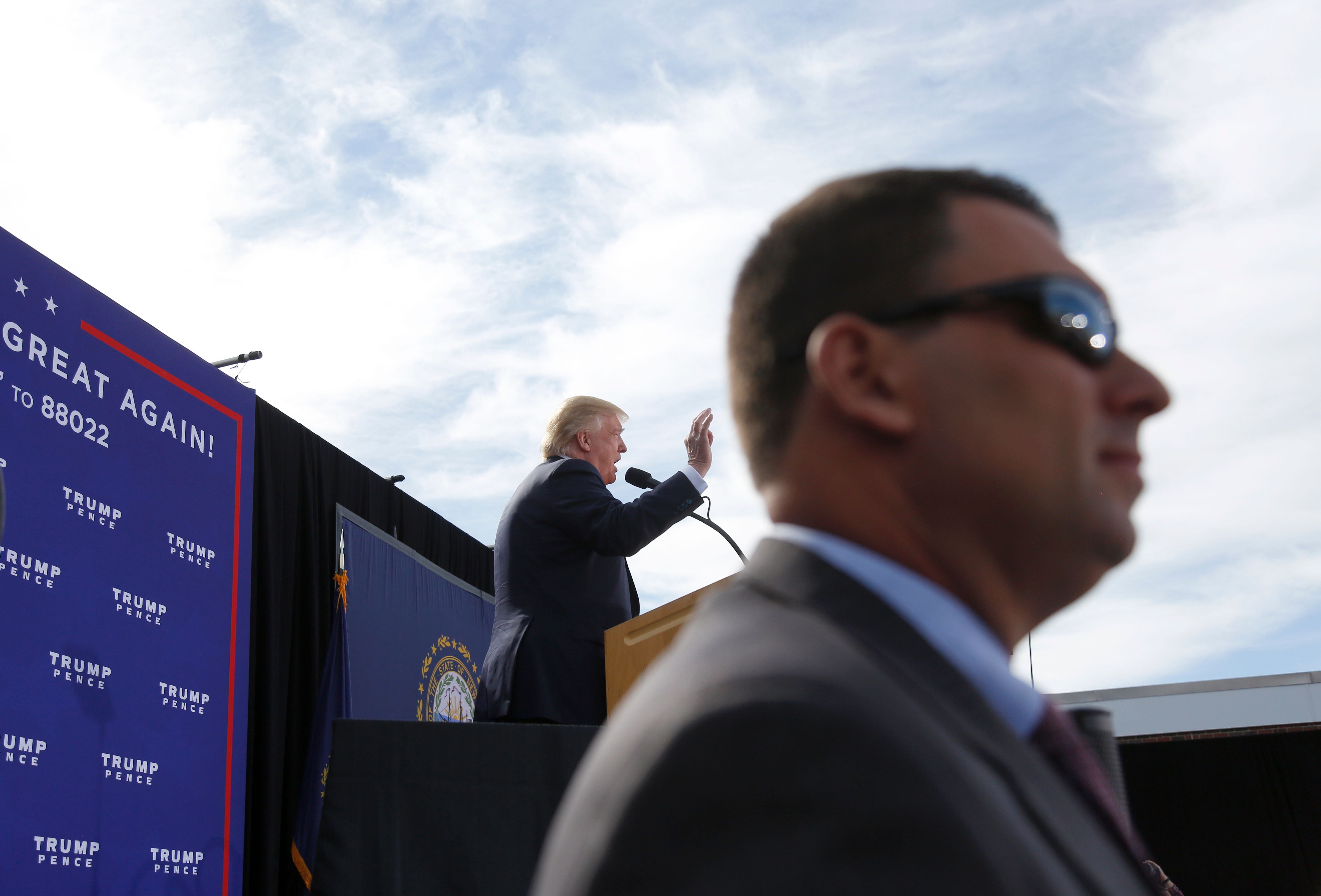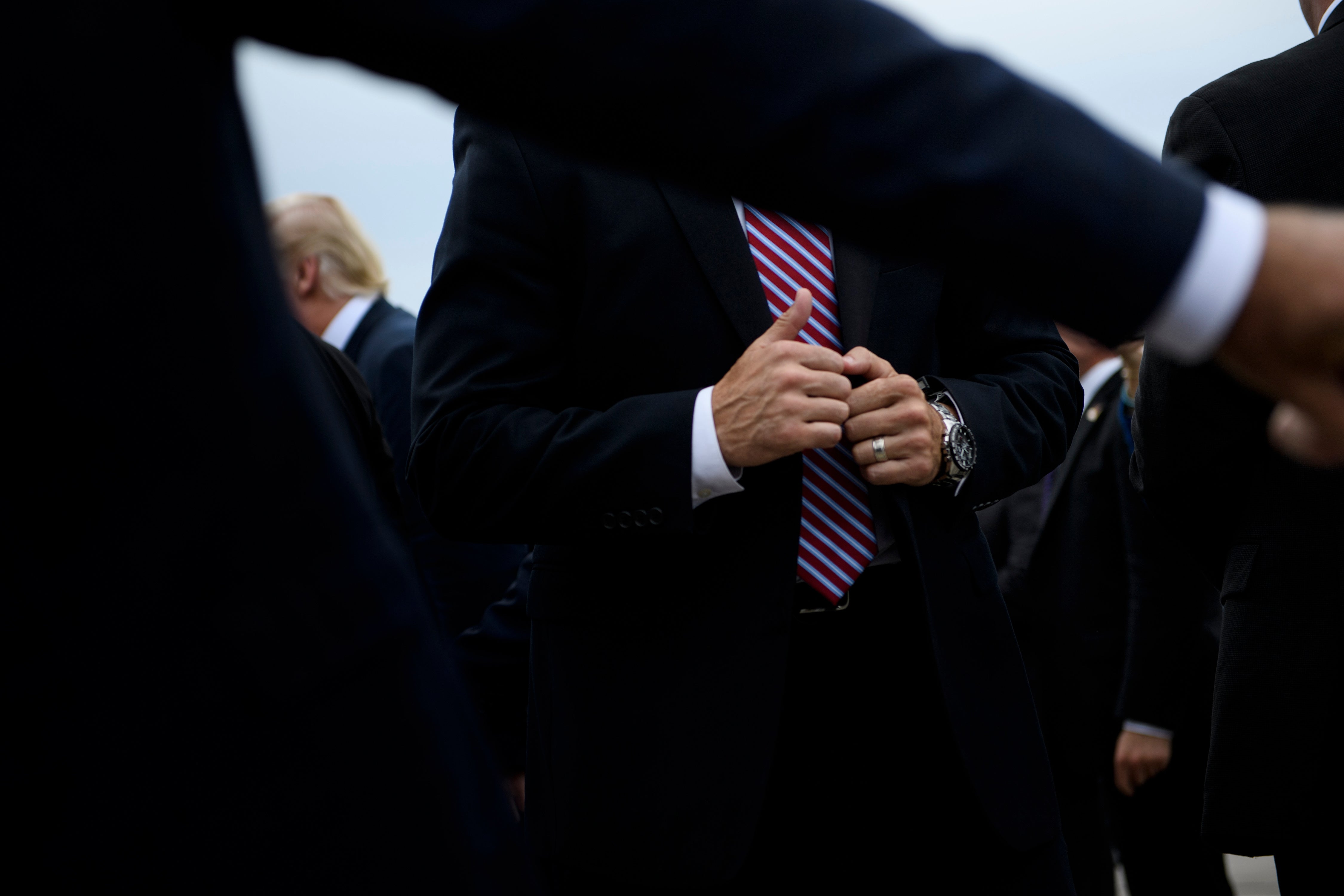Trump to blame for politicising Secret Service and potential Jan 6 cover-up, says expert
The former president is used to dealing with private bodyguards -- but not the nation’s oldest federal law enforcement agency, author Jeffrey Robinson tells Andrew Buncombe


Your support helps us to tell the story
From reproductive rights to climate change to Big Tech, The Independent is on the ground when the story is developing. Whether it's investigating the financials of Elon Musk's pro-Trump PAC or producing our latest documentary, 'The A Word', which shines a light on the American women fighting for reproductive rights, we know how important it is to parse out the facts from the messaging.
At such a critical moment in US history, we need reporters on the ground. Your donation allows us to keep sending journalists to speak to both sides of the story.
The Independent is trusted by Americans across the entire political spectrum. And unlike many other quality news outlets, we choose not to lock Americans out of our reporting and analysis with paywalls. We believe quality journalism should be available to everyone, paid for by those who can afford it.
Your support makes all the difference.Donald Trump is responsible for the stark politicisation of the US Secret Service whose agents are now accused of a cover-up over the events of Jan 6, says a veteran investigative author.
Jeffrey Robinson, whose books include Standing Next to History – An Agent’s Life Inside the Secret Service, says that while Trump was used to having private bodyguards for much of his life, the concept of the Secret Service (USSS), whose loyalty lies not to the individual but to the office they are tasked with protecting, was alien to him.
Trump’s demand that his Secret Service detail display such intense personal commitment to him is at the heart of the controversy currently being probed by the Jan 6 committee, he adds.
“That’s where this whole thing stems from. The fact that, in a sense, Trump contaminated the Presidential Protection Division (PPD) and contaminated the Secret Service,” says Robinson. “So when he demanded loyalty, as you would from a bodyguard, but not the Secret Service, there were guys like Tony Ornato who succumbed to that, and Trump gave him a job in the administration.”
He added: “In any other administration or with any other director, that would not have happened, or Ornato would have been fired. Because getting too close, and having that kind of relationship with the protectee, is dangerous.”
Robinson’s account of the Secret Service focused primarily on the life and work of Joseph Petro, who spent 23 years in the agency. Petro spent 11 of those protecting presidents, and for four years stood at the side of Ronald Reagan. Today, Petro is executive vice president of Citigroup Security and Investigative Services. Robinson claims that Petro represented the “gold standard” within the Secret Service.
The nation’s oldest federal law enforcement agency is at the centre of controversy after it was alleged Trump had tried to grab the wheel of his SUV when his Secret Service detail refused to take him to the US Capitol on Jan 6 to deliver another speech. “I’m the f***king president,” he apparently said at the time.
The allegation was made by senior White House assistant Cassidy Hutchinson, a former agent who Trump appointed his deputy chief of staff in 2019, who testified during a House Select Committee hearing last month that she had been told the information by Ornato. She told the committee that Ornato told her he had been told it directly by Robert Engel, the Secret Service agent in charge that day.
Initially, the agency pushed back and said that Engel would testify under oath that Hutchinson’s account hadn’t happened. The committee requested the agency provide it with all the documentation and text messages it contained from Jan 5 and 6, only for the agency to claim they had been deleted -- all bar one.
On Thursday evening, reports broke that future hearings by the committee -- which are due to restart in September -- could focus further on the role of the Secret Service agents.
Robinson, who also ghostwrote Trump’s first novel, an “erotic thriller” titled Trump Tower, says the Secret Service has changed its story several times about the text messages.
“They lie because somebody’s protecting somebody. Whether it’s the sender or the receiver, they will be found and if they show a Secret Service participation in January 5 and January 6, there are agents who are going to go to prison, and rightly so,” he says.

Does he think some agents played a role? Well, he thinks “there were agents who had some sort of fingerprints on January 6, that’s why these emails are missing.”
“Were they giving up information, were they concerned, were they this or that or some other thing, I don’t know because we’re still waiting to see them,” he says. “But I think there will be fingerprints on January 6 with these emails. And if they were innocent, or for better, they would have produced the emails.”
Robinson questions the Secret Service’s claim that the deleted messages were irrevocably lost.
“By the way, there is no such thing as an unreasonable email or text. The National Security Agency, or in the case of Britain (GCHQ) can find all this stuff. It’s up there in cyberspace. They don’t disappear,” he adds.
“You can take them off your phone, you can take them off your your laptop, you can take them off your server, but you can’t make them disappear from cyberspace, because they go through too many places.”
And Robinson’s suspicions are far from singular. Others were already suspicious of the Secret Service.
After Joe Biden defeated Trump in November 2020, the president-elect was being assigned a new protective detail. The move was taken after it was feared some agents might have personal political loyalty to Trump.
Meanwhile, evidence presented during one recent hearing of the Jan 6 committee found that vice president Mike Pence, who Trump had demanded stop the certification of Biden’s victory and who some protesters chanted they wanted to “hang”, declined to leave the Capitol that day after it was stormed.
The committee was told by Pence aide Greg Jacob, that the then vice president declined to get into his Secret Service vehicle, telling Tim Giebels, his lead Secret Service agent: “Tim, I know you, I trust you, but you’re not the one behind the wheel.”
On Thursday, CNN reported that Department of Homeland Security inspector general had told the Secret Service it is investigating what happened to January 6-related text messages that may have been deleted. It said it was part on an “ongoing criminal investigation” and directed the agency to stop its internal investigations into the matter.
For his part, Trump has rejected any wrongdoing. In a statement released on Thursday night, Trump claimed that the country would have been “a very different place” had he won a second term.
“Mike Pence told me, and everybody else, there was nothing he could do about the Electoral Vote Count – it was etched in stone. But if so, how come the Democrats and RINOs are working so hard to make sure there is nothing a VP can do?” he said.
The Secret Service did not immediately respond to questions from The Independent.
“The insinuation that the Secret Service maliciously deleted text messages following a request is false,” spokesperson Anthony Guglielmi said in a statement.
“In fact, the Secret Service has been fully cooperating with the Department of Homeland Security Office of Inspector General in every respect – whether it be interviews, documents, emails, or text.”
Robinson has called for a full investigation into what has happened. He says the head of the agency needs to be fired, though Biden is already in the process of replacing him.
“The way to get out of this now, is to fire the senior management of the Secret Service, and you investigate those missing tests and emails.”
Join our commenting forum
Join thought-provoking conversations, follow other Independent readers and see their replies
Comments